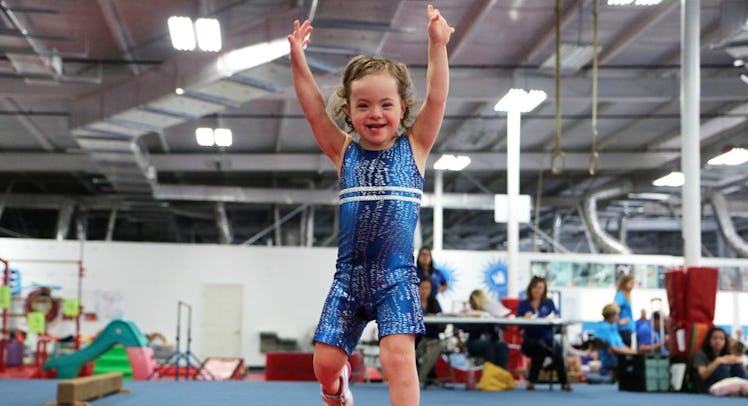4 Things I Hate To Hear From Other People About My Special Needs Kid
1. "That's so great you chose to keep them."

The following was syndicated from Medium for The Fatherly Forum, a community of parents and influencers with insights about work, family, and life. If you’d like to join the Forum, drop us a line at TheForum@Fatherly.com.
Here’s an excerpt from a brief post from a mom, Mary-Jane Williams, with a special needs son (via 4 things parents of kids with special needs wish you wouldn’t say — The Washington Post):
“They feel like they need to say something. So with the very best intentions, they often end up saying exactly the wrong thing. I’m sharing the 4 things I least like to hear. Not because I’m not appreciative of the incredibly kind thoughts that are behind them, but because I think people honestly don’t know what to say to parents of kids with special needs.”
I’ll leave it to you to click on the link to see what the 4 things are, from her perspective, but I wanted to add 4 of my own:
“That’s So Great You Chose To Keep Them.”
Umm, really? As opposed to what? Abortion? Since disabled infants are sadly aborted more than brought to term, apparently it’s supererogatory to bring a disabled child into the world — or so it’s thought by well-intended folks. Yes, there are challenges, but congratulating me for deciding to have my kid isn’t necessary.
Yes, there are challenges, but congratulating me for deciding to have my kid isn’t necessary.
“I Have A Relative With The Same Thing — And They Happened To Live A Happy And Productive Life.”
Well, life isn’t just about productivity. There are many who won’t live a productive life, at least by the standards of some. It’s really secondary for some compared to the immeasurable value of love. An encouraging sentiment, sure, but it sounds like life isn’t worth living unless certain capacities are present.
“Did You Have Any Testing Done Prior To Birth To Know About The Disability?”
Just a flat out rude and personal question. Sometimes it’s assumed that outrage should be directed at a failure in the testing; again, because it’s assumed one would’ve terminated the pregnancy. Or the thought that one would have the baby after knowing the test would merit congratulations or incredulity.
“I Hear There Are Some Wonderful Facilities To House Those With Such Disabilities.”
Yes, there are. Not to demean such housing facilities, but a handicapped person doesn’t need to live out the rest of their life among others who are handicapped. It all depends on the nature of the handicap and the capability of parents later in age to handle the physical rigor that comes with certain handicaps, but it might be better for such children to be mainstreamed in society.
The issue is the comment just assumes the disabled belong among their own in some special facility. Since this is a very personal and touchy issue, it is better to remain quiet about recommendations about facilities. Bringing up certain programs that would cultivate flourishing, like a special baseball league or Special Olympics, are fine, but don’t bring up a residential facility.
As a parent myself, I’m less interested in awkward compliments and discussions about the nature of the disability.
I’m sure there are many more things I could think of. But instead, here’s a list of positive things that could be said:
“I Love Their Smile.”
Or think of some other beautiful reflection of their humanity worth noting.
“What Are Their Hobbies/Favorite Activities/Favorite Sports?”
Again, focus on a shared aspect of their humanity by inquiring about what they like. You can be a source of joy by providing a thoughtful gift oriented towards something they enjoy.
“What’s Their Favorite Food To Eat?”
Another inquiry about shared humanity. You can be a blessing by perhaps dropping off a meal or snack or dessert that the child likes.
I can think of more, and so can you. The emphasis here is on shared humanity and fostering community around common likes and activities. You can be a blessing and will be blessed when making an intentional effort to befriend someone with a disability. Remember their name. Smile at them. Greet them with a hug. Laugh, listen, play, and eat with them.
Yes, there are challenges, but congratulating me for deciding to have my kid isn’t necessary.
As a parent myself, I’m less interested in awkward compliments and discussions about the nature of the disability; I’d rather you just smile and chat with my child. Once that relationship is established, it’s much easier being transparent and responsive to genuine inquiries about the challenges of parenting.
Rick Hogaboam is a husband, father, pastor, non-profit director, editorial board member, educator, and coach.
This article was originally published on